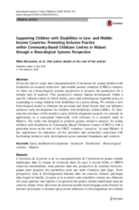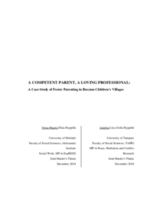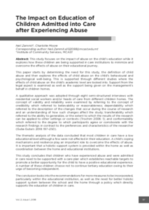Webinar: Care for Boys Affected by Sexual Violence
In this webinar presented by RISE Learning Network, Omattie Madray and Zenainda Rosales presented an extensive study recently carried out which analyzed over 100 documents and conducted over 20 interviews to gain insights on practices of organizations supporting and caring for boys affected by sexual violence in their recovery process.



